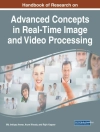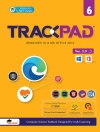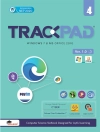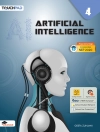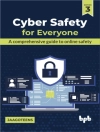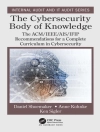This book reviews humanitarian literature and presents the development of low-cost track & trace management system integrated with accurate GPS location data pinging using Internet of Things (Io T). The first part relates to mobile device configuration with an embedded GPS and wireless Internet connection to transmit its current location. The second part presents web server implementation and development that receives the data, parses it, and stores it for access over the Internet. The third part discusses the user interface that allows one to visually identify the current location of the device.
Daftar Isi
Introduction.- Dementia and intellectual disability management system: a conceptual study.- A Review of Some Assistive Tools and their Limitations.- A Technical Review on UAV For Object Detection.- Hardware, Component and their Description.- Implementation Process.- Track & Trace Management System for Dementia and Intellectual Disabilities.- M5-Tracker (Dementia, elderly, visually impaired and intellectual disabilities Tracking Device).- Geriatric Mobility Assistive System.- Dementia Disease Detection from Psychiatric Disorders Based on Automatic Speech Analysis.- Localization and Mapping of Visually Impaired.- Diabetic Retinopathy Detection.- Real-Time Health Monitoring Using Wearable Devices.- AI System for Prediction and Recommendation of Diabetes.
Tentang Penulis
Dr. Suresh Merugu obtained his Ph.D. from Indian Institute of Technology Roorkee. He has over 14 years of teaching experience and several years of research experience in the fields of advanced digital image processing, colorimetry, computer vision, sub-pixel classification, data mining techniques, and space sciences. He has been working as Head, Research & Development at CMR College of Engineering & Technology, Hyderabad, since 2007. He has authored and published/presented around Forty Eight publications in various reputed international/national journals and conferences. He acts as Reviewer for few reputed international/national journals and conferences. He was awarded the prestigious “IEEE Hyderabad Humanitarian Technology Leadership Award for the year 2020” and has been working as Chair, IEEE SIGHT Group, IEEE Hyderabad Section since 2019 onwards. He is a member of IEEE and has been a very active IEEE Volunteer at Section
Dr. Amit Kumar - A DNA Forensics Professional, Entrepreneur, Engineer, Bioinformatician and an IEEE Volunteer. In 2005 he founded the first Private DNA Testing Company Bio Axis DNA Research Centre (P) Ltd in Hyderabad, India with a US Collaborator. He has vast experience of training 1000+ Crime investigation officers and helped 750+ Criminal and non-criminal cases to reach justice by offering analytical services in his laboratory. His group works extensively on Genetic Predisposition risk studies of cancers and has been helping many cancer patients from 2012 to fight and win the battle against cancer. Amit was a member of the IEEE Strategy Development and Environmental Assessment committee (SDEA) of IEEE MGA. He is a senior member of IEEE and has been a very active IEEE Volunteer at Section, Council, Region, Technical Societies of Computational Intelligence and Engineering in Medicine and Biology and at IEEE MGA levels in several capacities. He has driven a number of IEEE Conferences, Conference leadership programs, Entrepreneurship development workshops, Innovation and Internship related events. Amit was the Chairman of IEEE Hyderabad section in 2020 and was a visiting Professor at SJB Research Foundation till 2020. He was awarded the prestigious IEEE MGA Achievement award in 2020 for outstanding contributions at Section, Council and Region levels. Currently He is a member of IEEE MGA Nominations and Appointments committee and Chairman of IEEE Region 10 Section Chapter committee. He was the winner of IEEE MGA Achievement award and the IEEE India council outstanding volunteer award in 2020.
George Ghinea is Professor in the Department of Computer Science at Brunel University London. He obtained his Ph.D.—Quality of Perception: An Essential Facet of Multimedia Communications—from the University of Reading, UK, in 2000. His research activities lie at the confluence of computer science, media, and psychology. In particular, his work focuses on the area of perceptual multimedia quality and how one builds end-to-end communication systems incorporating user perceptual requirements. His work has been applied in areas such as eye tracking, telemedicine, multimodal interaction, and ubiquitous and mobile computing. He is interested in building human-centred e-systems, particularly integrating human perceptual requirements


